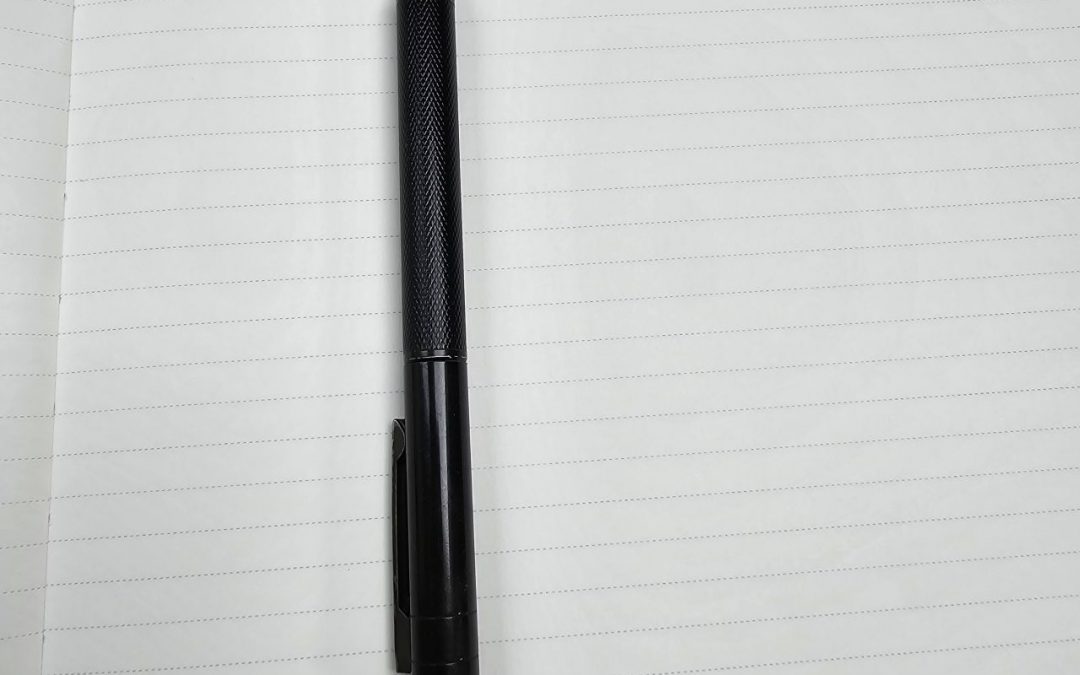
I like pens – not necessarily uber expensive Mont Blanc-type pens (the one in this shot is great and only costs £20). I also prefer to take handwritten notes as I find the physical act of writing helps my mind process and remember the content much more effectively. There is science backing up this linkage (and the other day, I came across Jo Banks‘ great article on this topic: https://lnkd.in/e9VXsPzu)
From the lens of decision-making, this linkage between the physical and emotional to the cerebral and rational is too often overlooked. In addition, organisations often fail to connect workspace design, the pressures individuals may be under, the emotional states of teams and other factors to decision quality and as a consequence, performance. Even though there is good science behind these things, they too often get dismissed as superfluous or even “woo-woo”. That’s a mistake. So, this is a reminder (and for me a self-reminder) to regularly (but especially when making an important decision):
😴 Sleep – When sleep-deprived, we are less likely to identify alternative options because, our creative thinking ability is impaired. We are also less likely to spot threats (interestingly, our ability to spot opportunities is not as impaired) and be more reckless. We are also less likely to work well with others. Dangerously, it’s often hard to tell when we are sleep deprived.
🍎 Eat – There are range of studies on this which show that when we are hungry, our ability to delay gratification is impaired. One showed that on average, the willingness of people to wait to obtain double a current reward in the future drops from 35 days to 3 when hungry. The upshot: not only avoid grocery shopping when hungry, also don’t make investment decisions in that state either.
🏃♂️ Move – Regular exercise has been proven to improve cognitive function and cardiovascular exercise in particular has been shown to improve memory and thinking skills. Don’t feel guilty for slipping out of the office for a mid-afternoon workout as you may actually be doing your organisation (and yourself) a favour.
🧘♂️ Breathe – Long, slow, abdominal breathing is proven to reduce anxiety (note – not “deep breaths”), particularly when the exhale is longer than the inhale. The benefits of a regular meditation practice are also now much more widely understood.
None of this is new of course nor is it mind-blowing. However, we often deceive ourselves and each other that these linkages don’t exist. When we make decisions, we have to remember to do so like human beings.
Your Title Goes Here
Your content goes here. Edit or remove this text inline or in the module Content settings. You can also style every aspect of this content in the module Design settings and even apply custom CSS to this text in the module Advanced settings.
Your Title Goes Here
I like pens – not uber expensive Mont Blanc-type pens (the one in this shot is great and only costs £20). I also prefer to take handwritten notes as I find the physical act of writing helps my mind process and remember the content much more effectively. There is science backing up this linkage (and the other day, I came across Jo Banks‘ great article on this topic: https://lnkd.in/e9VXsPzu)
From the lens of decision-making, this linkage between the physical and emotional to the cerebral and rational is too often overlooked. In addition, organisations often fail to connect workspace design, the pressures individuals may be under, the emotional states of teams and other factors to decision quality and as a consequence, performance. Even though there is good science behind these things, they too often get dismissed as superfluous or even “woo-woo”. That’s a mistake. So, this is a reminder (and for me a self-reminder) to regularly (but especially when making an important decision):
😴 Sleep – When sleep-deprived, we are less likely to identify alternative options because, our creative thinking ability is impaired. We are also less likely to spot threats (interestingly, our ability to spot opportunities is not as impaired) and be more reckless. We are also less likely to work well with others. Dangerously, it’s often hard to tell when we are sleep deprived.
🍎 Eat – There are range of studies on this which show that when we are hungry, our ability to delay gratification is impaired. One showed that on average, the willingness of people to wait to obtain double a current reward in the future drops from 35 days to 3 when hungry. The upshot: not only avoid grocery shopping when hungry, also don’t make investment decisions in that state either.
🏃♂️ Move – Regular exercise has been proven to improve cognitive function and cardiovascular exercise in particular has been shown to improve memory and thinking skills. Don’t feel guilty for slipping out of the office for a mid-afternoon workout as you may actually be doing your organisation (and yourself) a favour.
🧘♂️ Breathe – Long, slow, abdominal breathing is proven to reduce anxiety (note – not “deep breaths”), particularly when the exhale is longer than the inhale. The benefits of a regular meditation practice are also now much more widely understood.
None of this is new of course nor is it mind-blowing. However, we often deceive ourselves and each other that these linkages don’t exist. When we make decisions, we have to remember to do so like human beings.

